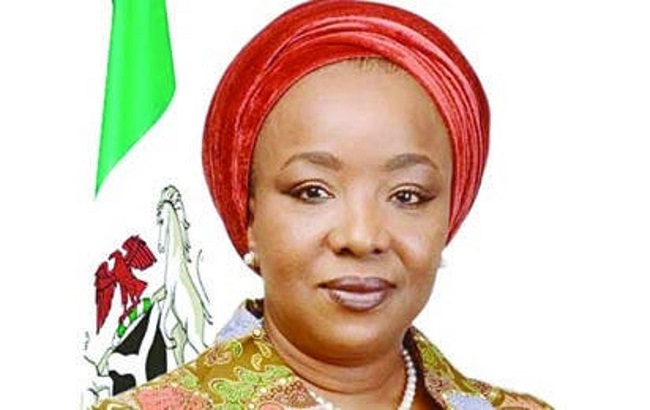Minister of State for Environment, Mrs Sharon Ikeazor, has stressed the need to adopt modern technologies inherent in geospatial science to address biodiversity loss and climate change in Nigeria.

Mr Saghir el Mohammed, Director, Press and Public Relation in the ministry, who said this in a statement on Friday, November 20, 2020 in Abuja, stated that the minister was addressing members of Group on Earth Observations (GEO) via a virtual meeting in Geneva, Switzerland.
The GEO is a partnership of more than 100 national governments and in excess of 100 participating organisations under the UN.
She also said that this commitment would help in the Lake Chad Basin and Nigeria’s coastal regions, urging the Inter-Ministerial Committee on Climate Change to work closely with the National Earth Observation (NEO) team to enable them carry out their assignment.
The minister noted that the data and knowledge derived from earth observations would help the government to plan and tackle climate crises in various sectors, saying that she was delighted to learn that the National Space Research and Development Agency (NASDRA) was already working with GEO.
According to her, the NEO team will help to proffer lasting solutions to the inter-linked climate change crises and also enable early warning detection of crop failures, thereby improving livelihoods and food security.
“Geospatial science for biodiversity and ocean are very important especially in a country like Nigeria,” the minister said, while reaffirming her commitment to mobilising youths to play key roles in climate actions.
“It is the young ones who will take advantage of these technologies, have access to authentic data and job opportunities in the country,” she said.
In his remark, Mr Steven Ramage, GEO’s Head of External Relations, said the organisation focuses mainly on agriculture, biodiversity, cities, climate action, data, forestry, land degradation neutrality, oceans (GEO Blue Planet), water sustainability and disaster risks reduction.
Also contributing, Catherine Nakaleme of AfriGEEO noted that the Digital Earth Africa would assist countries in the continent to realise the potential of Earth Observation, and guarantee sustainable development.
Nakaleme said that Digital Earth Africa has the capacity to provide a unique continental scale analysis and factual data for operational purposes.
The Digital Earth Africa also focuses on addressing challenges on soil and coastal erosion, forest and desert development, water quality and changes to human settlements across Africa.
